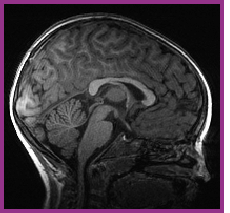Current Research
Baby's First Years: A Randomized Controlled Trial of Poverty Reduction
In response to the growing body of research examining the effects of socio-economic disparities on cognitive development, a team of social scientists and neuroscientists are launching the first randomized experiment testing causal connections between poverty reduction and brain development among young children. We gratefully acknowledge funding commitments from the NICHD (R01HD087384-01) and a consortium of private funders.
For more information, visit our website and read these news coverages on Spectrum News and The Reader; see this story in The Economist or watch this video featuring Dr. Greg Duncan.
Core PIs: Drs. Kimberly Noble, Katherine Magnuson, Greg Duncan, Lisa Gennetian, Hirokazu Yoshikawa, Nathan Fox
Co-Investigators and Consultants: Drs. Michael Georgieff, Debra Karhson, Alicia Kunin- Batson, Timothy Nelson, Jennifer Mize Nelson, Sonya Troller-Renfree
National Project Director: Lauren Meyer
Building Understanding of Developmental Differences across Years (BUDDY)
A growing body of research has found socioeconomic disparities in children's language and memory development in early childhood. The BUDDY Study aims to follow 200 children through the first three years of their life understand how brain function, language, and memory develops during this important period. Specifically, the study will help us understand how the home environment can change the genome, how parents and children experience stress, and how parents and children communicate. Through this work, we hope to identify both the risk and protective factors for child language and memory development that can inform scientific and policy interventions.
This project is made possible by funding from the National Institute for Child Health and Human Development (NICHD, R01HD093707).

Baby Behavior, Language, and EEG (BabBLE) Study
Recent findings from our lab have demonstrated SES disparities in language and memory development emerging by 15 months (Noble et al., 2015,Developmental Psychobiology) and a significant role of the home environment as early as 9 months (Melvin et al., 2016, Infancy). To explore these findings further, we are examining the ways in which early experiences such as home language environment, parent-child interactions, and parent stress impact language, memory, and brain development in 6-12 month-old infants.
This project is funded by Teachers College, Columbia University, the Russell Sage Foundation, and the Presidential Scholars in Society and Neuroscience at Columbia University.


MRI Study of Children's Cognitive and Brain Development
Previous research shows that socioeconomic disparities in early childhood are related to differences in children's language, memory, and self-regulation abilities. This study, supported by the Irving Institute for Clinical & Translational Research, the Russell Sage Foundation and Teachers College, Columbia University, investigates the environmental, neuroendocrine, and neural factors that contribute to differences in these skills.
We are studying the relations among exposure to linguistic stimulation, stress levels and physiology, brain structure, and cognitive outcomes in five- to nine-year-old children.


